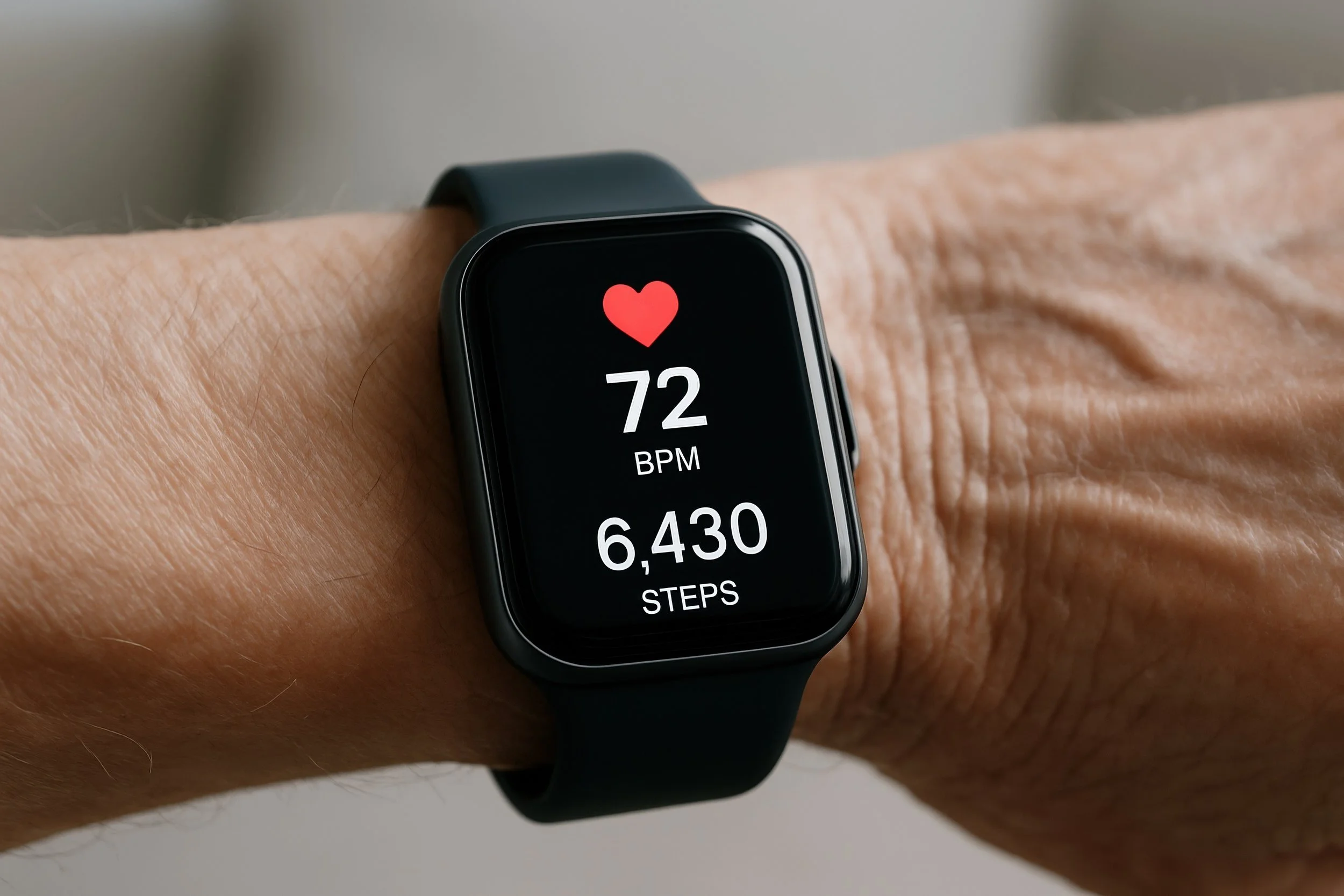Daily Steps & Heart Health: What New Research Means for Your Cardiovascular Care
AdobeStock Lic. #1628111270
As a practicing cardiologist in New York City, I often tell my patients that one of the most powerful prescriptions I can offer doesn’t come in a pill bottle. It comes in the form of consistent, intentional movement. And now, a major new study just published in The Lancet Public Health further reinforces that simple truth: walking—even modestly—can significantly lower your risk of heart disease and even extend your life.
This latest meta-analysis reviewed data from 57 separate studies and confirmed what I’ve observed in my own practice for years: individuals who take at least 7,000 steps per day experience markedly better cardiovascular outcomes. Compared to sedentary individuals averaging just 2,000 steps daily, those reaching 7,000 saw:
A 25% lower risk of developing cardiovascular disease
A 47% lower risk of dying from cardiovascular causes
A 47% reduction in all-cause mortality
That’s profound. These findings reshape the way we think about daily movement and longevity. And the best part? You don’t need to hit the mythical 10,000-step number to benefit.
Why This Matters to My Patients
In my Midtown Manhattan office, I see patients from all walks of life: executives, artists, educators, retirees. Many are managing conditions like high blood pressure, arrhythmia, or elevated cholesterol. For these individuals, the idea of an intense workout can feel daunting or even unsafe.
But 7,000 steps? That’s doable.
Other studies reinforce this. For example, a 2023 review found that every additional 1,000 steps per day reduces all-cause mortality by 15%, and every 500 steps lowers cardiovascular death risk by 7%. And for hypertensive individuals, benefits continue up to around 9,700 steps per day, where mortality benefits begin to plateau.
These numbers are powerful because they give us actionable, achievable goals. As a clinician, that’s invaluable.
Walking: More Than Just Steps
It’s not just about quantity. How you walk matters, too. Research from Japan shows that walking briskly for just 15 minutes a day can reduce early death risk by nearly 20%. That’s the equivalent of walking two Manhattan avenues—and can make a real difference in your long-term prognosis.
In fact, even if you only walk 8,000 steps a day one or two days a week, that’s still associated with lower cardiovascular and all-cause mortality. Consistency helps, but perfection isn’t required.
What I Recommend in My Practice
Here at CardiologistNYC.com, we help each patient tailor their step goals based on their unique profile. Here’s what I typically advise:
Start where you are. If you're only getting 2,000 steps per day now, aim for 3,000. Then 4,000. Incremental gains are meaningful.
Track it. Use your smartphone, a pedometer, or a smartwatch. Seeing the number grow is motivating and empowering.
Walk with purpose. Try to add short, brisk walks after meals. Take stairs instead of elevators. Little habits add up.
Focus on trends, not perfection. Walking 7,000 steps a day five days per week is better than 10,000 steps once per week.
Make it social. Join a walking group, challenge a friend, or walk while you talk on the phone.
Step Count Targets by Risk Group
Group Step Target Outcome Sedentary adults 4,000 steps/day Beginning of benefit zone General population 7,000 steps/day Major CV & longevity gains Hypertensive patients Up to 9,700 steps/day Cardiovascular mortality benefit maxes out
These aren’t just numbers. They are attainable goals that I’ve seen transform my patients’ lives. A retired teacher of mine who began walking in Central Park daily now boasts better blood pressure than she had in her 40s. Another patient recovering from a mild heart attack used a step-tracking app to stay accountable and steadily increased his steps from 2,000 to 8,500 per day—with his blood lipids and resting heart rate to show for it.
The Bottom Line
The science is clear. You don’t need to become a marathoner to dramatically improve your heart health. A brisk walk after breakfast. A stroll in the evening. Pacing during phone calls. These small choices can lead to large benefits.
As your cardiologist, I will always be here to manage medications, review imaging, and run tests. But I also want to help you build habits that reduce your reliance on those things. That’s why I’m excited about research like this. It arms us with evidence to back up one of the most powerful interventions we can make: walking. The Concierge practice can help you get started by scheduling an Executive Annual Physical to gauge the levels and step counts that will be commensurate with your condition.
Sources
Ding D, et al. "Daily steps and health outcomes in adults: a systematic review and meta-analysis." The Lancet Public Health. 2025. https://www.thelancet.com/journals/lanpub/article/PIIS2468-2667(25)00164-1/fulltext
Banach M, et al. "Meta-analysis: Daily step count and all-cause / CV mortality." Eur J Prev Cardiol. https://pubmed.ncbi.nlm.nih.gov/37555441/
Guo T, et al. "Step count and cardiovascular mortality in hypertensive adults." BMC Public Health. https://bmcpublichealth.biomedcentral.com/articles/10.1186/s12889-024-21216-y
JAMA Network. "Association of Step Count and Mortality Risk." https://jamanetwork.com/journals/jamanetworkopen/fullarticle/2802810
Health.com. "Even 4,000 steps a day improves longevity." https://www.health.com/4000-steps-live-longer-study-7574339
If you're not sure where to begin, schedule a visit and we’ll talk about a plan that’s realistic, motivating, and tailored to your heart. After all, the road to better health often begins with a single step.
Stay well,
Dr. Mark Meyer

